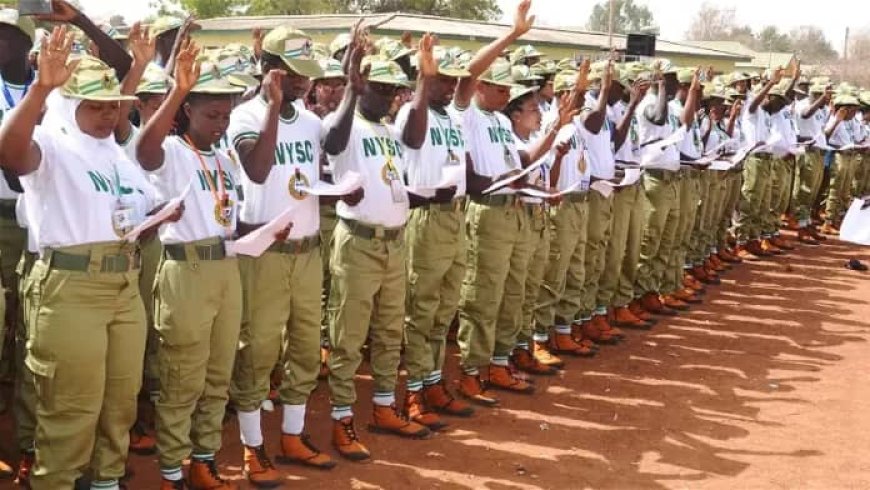Court orders NYSC to allow skirts for female corps members

The Federal High Court in Abuja has declared the National Youth Service Corps’ refusal to allow female corps members to wear skirts in observance of their religious beliefs as unconstitutional and a breach of the fundamental right to freedom of religion.
In a judgement delivered on June 13, 2025, a certified true copy of which was sighted on Sunday, Justice Hauwa Yilwa held that the NYSC’s enforcement of trousers as the only acceptable uniform for female participants violated the constitutionally guaranteed rights to freedom of religion and human dignity.
The cases, initially filed separately by former corps members Miss Ogunjobi Blessing and Miss Ayuba Vivian, were later consolidated due to their legal similarities and adjudicated together by Justice Yilwa.
In the suits marked FHC/ABJ/CS/989/2020 and FHC/ABJ/CS/988/2020, the applicants argued that being compelled to wear trousers contradicted their Christian faith, citing Deuteronomy 22:5, which they interpret as prohibiting women from wearing garments associated with men.
The applicants, in their separate suits, had sought the enforcement of their fundamental rights to freedom of religion, alleging that these rights had been violated by the respondents.
Listed as respondents in the suits were the National Youth Service Corps and the Director-General of the NYSC.
Their applications were brought pursuant to Order 11, Rules 1–5 of the Fundamental Rights (Enforcement Procedure) Rules 2009; Sections 38 and 42 of the Constitution of the Federal Republic of Nigeria 1999 (as amended); Articles 2, 5, 6, 8, 10, 17, and 19 of the African Charter on Human and Peoples’ Rights; and under the inherent jurisdiction of the court.
They sought the following reliefs, “A declaration that the refusal of the NYSC to recognise and allow skirts as part of the NYSC uniform constitutes a breach of the applicant’s right under Section 38(1) of the 1999 Constitution (as amended), as well as Deuteronomy 22:5 of the Bible, and a misinterpretation of Schedule 2, Article 1(I)(a) of the NYSC Bye-Laws 1993.
“A declaration that the use of skirts by the applicant in the NYSC scheme forms part of her fundamental rights to freedom of religion and to manifest the same in practice and observance as provided for in Section 38(1) of the 1999 Constitution (as amended).
“A declaration that the harassment, embarrassment, and humiliation suffered by the applicant at the hands of NYSC officials constitute a clear infringement of her rights to freedom of religion and to manifest same in practice, as well as the right to human dignity and protection from degrading treatment.
“An order compelling the respondents, their servants, agents, privies, or anyone acting on their behalf, to recognise, allow, and provide skirts for the applicant or any female corps member wishing to wear same in accordance with Section 38(1) of the 1999 Constitution (as amended) and Deuteronomy 22:5”.
They also demanded damages for ₦10,000,000, and any such further order(s) as the Honourable Court may deem fit to make in the circumstances.
The court in its decision held that the NYSC’s insistence on trousers not only infringed on the applicants’ right to manifest their religion under Section 38(1) of the 1999 Constitution (as amended), but also subjected them to undue harassment and degrading treatment.
Justice Yilwa, in a ruling, granted all the reliefs sought by the applicants and issued identical orders in both cases.
“A declaration that the refusal to allow skirts for religious purposes is unconstitutional.
“An order mandating the NYSC to recognise and permit the use of skirts for female corps members with genuine religious objections.
“A directive compelling the NYSC to recall the affected former corps members and issue their certificates accordingly,” the court stated.
The court further declared that the harassment, embarrassment, and humiliation suffered by the applicants at the hands of NYSC officials constituted a clear infringement of their fundamental rights to religion and freedom to practise it.
The judge awarded ₦500,000 in damages to each applicant for the violation of their fundamental rights.
Although both applicants had sought ₦10 million in damages, the court considered ₦500,000 to be adequate in the circumstances.
The judgement emphasised that denying the applicants the opportunity to complete their national service due to their attire amounted to religious discrimination.
The actions of the respondents resulted in the applicants being embarrassed and humiliated.
“This is a blatant infringement of their fundamental rights,” Justice Yilwa stated

 admin
admin 


